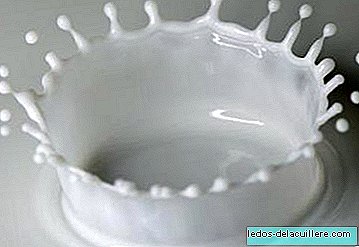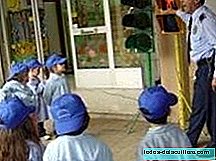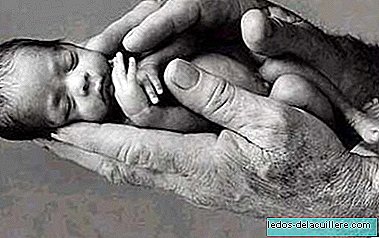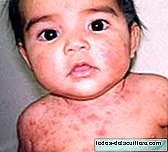
The soy milk for infants It is a product that is usually prescribed when a non-breastfed baby has symptoms of cow's milk allergy. Usually, women cannot or do not wish to breastfeed. They find special preparations designed to feed babies and children. These preparations have the generic name accepted by international organizations as “breast milk substitutes”, in order to make consumers aware that these milks, previously called “maternized”, are not the same as human milk. Most of these preparations are based on modified cow's milk.
However, some women decide to use soy milk derivatives, especially if the increasingly common allergy to cow's milk proteins is detected in the baby. But soy milk for infants is not free of consequences for the child's health.
Infant formulas based on soy They contain a class of natural components known as phytoestrogens. Phytoestrogens mimic some of the actions of estrogen, the female hormone. They also have an impact on development and the immune system, so there are doubts about their safety in the case of being administered to infants. Changes in the functions of the sex glands, the central nervous system, the thyroid gland and behavior are studied.
Research is currently underway in many countries on the effects of this product, in order to ensure that its consumption is carried out with maximum guarantees and with all relevant information.
In Costa Rica, where the news came from, it is indicated that there is an abuse in the use of these "milks" with effects not sufficiently studied and it has been decided to analyze them in greater depth. It is to be taken into account that it is recorded that continuous exposure to isoflavone can cause precocious puberty among girls and that other components, such as phytates, aluminum, leticin and manganese, present in soybeans, can affect the immune system.
There is also a document, provided by the Cochrane reviews and collected by the WHO that indicates that feeding with soy formula cannot be recommended to prevent allergy or food intolerance in infants at high risk of allergy or food intolerance.
When I investigate these issues, I always feel confused. I perceive that many of our eating habits can have pernicious consequences for health, but that there is a lack of enough studies so that we get to know all the implications of each decision. For example, the use of bottles in maternity hospitals, when there is no medical reason for weight, is something that influences both the success of breastfeeding and the development of subsequent allergies. It would be interesting to deepen all these issues with the utmost rigor. After all, when it comes to the health of our children, all prevention is low.
Via | The nation
More information | Holistika
In Babies and more | Pediatricians recommend consuming soy milk, Vegetable milks: alternatives to cow's milk in children allergic to milk protein












